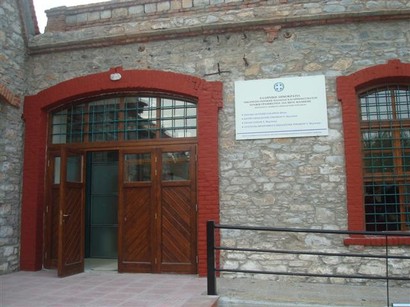SECOND CHANCE SCHOOL OF VOLOS
Κύριο Μενού:
Services
The School
The total duration of the programme is two educational years, regardless if the learners have attended in the past a few classes of the junior high school or they only have a primary school certificate. The weekly programme consists of 25 teaching hours and the courses take place during the evening, between 4.00 p.m. - 8.05 p.m., from Monday to Friday.
The courses (literacies) being taught are Greek language, English, Math, Computer Science, Environmental Education, Social Education, Science-Technology and Cultural-Aesthetic Education (Art). Psychological and career counseling and support are also provided. Furthermore, interdisciplinary projects and various workshops are organized, taking always into consideration learners' interests and needs.
The curriculum addresses and reflects the current social and economic priorities and needs of the labor market. Emphasis is placed upon the acquisition of basic skills and the development of personal skills and abilities. In particular, the acquisition of general knowledge, the use of new technologies, the learning of a foreign language and career counseling improve significantly the access to the labor market.
The aim of teaching in the Second Chance School is to transform the school from a place where knowledge is simply transferred to a place where knowledge is produced and constructed. Consequently, this leads to a search for new teaching methods which make the learners directly and actively involved in the learning process. Inevitably, the teaching methodology in the Second Chance School requires a different school organization and new teaching practices, such as:
* an open curriculum
* flexibility of the teaching-learning time, which monitors the interest and the development of the activities of the learners
* social and democratic orientation of the whole learning activity
Subsequent teaching principles comprise the self-motivation, experiential learning, supervision, free choice, participation of learners in decisions concerning their own learning, differentiation of teaching, interdisciplinary teaching and critical thinking.
